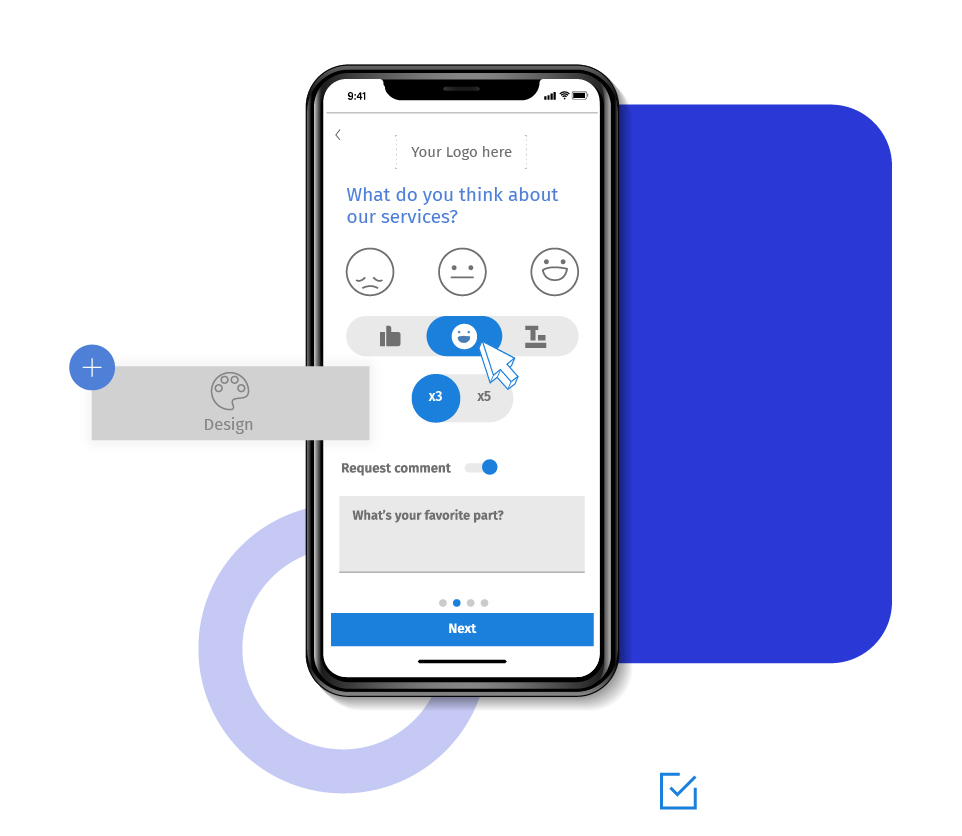A survey reward is an incentive for the respondents to answer the survey. If you offer incentives like cash rewards, points or gift cards to the respondents, they are more likely to complete the survey. Also, the data collected will be more reliable as they will answer all the questions honestly. Offering rewards to your respondents is one of the most common ways to increase the survey completion rate, as humans are more likely to do something if they get anything in return.
Example of survey rewards
Say, you are conducting a fitness tracker survey with 30 questions. Quite often users are not willing to spend their time answering all the questions. If they find that they will get an Amazon gift-card to answer the survey, it might urge them to complete the survey.
Or consider an online quiz. To attract more respondents, offer a prepaid visa card to the top 3 scorers.
Uses of survey rewards and incentives for respondent
Offering rewards for answering a survey can help you get audiences that are generally hard to reach. You can also offer indirect rewards such as benefits to the third party like a nonprofit organization. Decide whether or not to incentivize your survey by carefully considering the circumstances.
Survey incentives are one of the best ways to reward your respondents when you already know them. It works great in extracting the right data when offered to the right target audience. But if you randomly send your survey to anybody, the cost of offering rewards will be too high.
If you have a budget around the number of rewards to be offered, you can set a limit on the number of responses or close the survey after a specific time.
Types of survey rewards and respondent incentives
There are many ways you can offer incentives to the survey respondents. They can be categorized as:
Direct rewards: These types of rewards are offered directly to the respondents in form for gift cards, coupons, prizes, etc. Make sure you mention the terms and conditions to win a reward very clearly. You can keep a link to the T&C page in the survey invitation mail or link it in the survey introduction text. It will ensure that you don’t land in legal trouble.
Indirect rewards: These types of rewards are not directly handed over to the respondents but instead, a third-party is benefitted when a respondent fills out a survey. Indirect survey rewards have a great potential to collect data from the right set of the audience because they are not going to get any direct rewards, the fact they are willing to answer a survey implies they are genuinely interested in answering the survey. Say, whenever somebody fills out a survey, you donate $1 to a nonprofit organization. By offering indirect survey rewards, you can collect valuable data, respondents donate their time and the third-parties get the donation.
You can select from below options to set up rewards in QuestionPro surveys. Once you set up qualifying criteria, you need to select a reward:.
Advantages of survey rewards and respondent incentives
Higher completion rate: Survey rewards compel respondents to answer all the questions as the rewards are applicable only if they complete the survey. If the respondents answer all questions, only then it benefits the researchers as they gain more insights from more responses. Thus, respondents don’t leave the survey midway and stretch to answer all the questions to qualify for the rewards.
High-quality data: As in the case of indirect rewards, respondents are more driven to answer the questions as completing the survey. When respondents answer selflessly, the data is accurate and rich in insights.
How to set up survey rewards or respondent incentives for your surveys?
Check out our rewards help documentfor a better understanding of how it works.
Survey Software Easy to use and accessible for everyone. Design, send and analyze online surveys.
Research Suite A suite of enterprise-grade research tools for market research professionals.
Customer Experience Experiences change the world. Deliver the best with our CX management software.
Employee Experience Create the best employee experience and act on real-time data from end to end.





